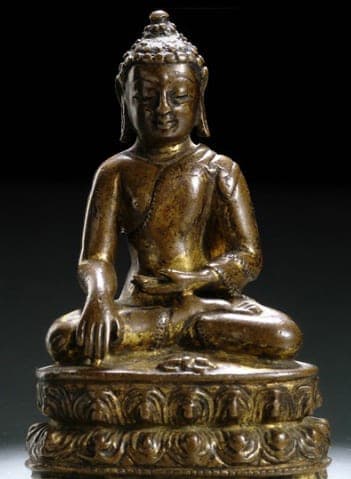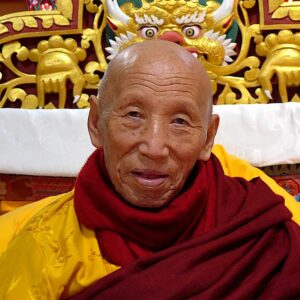We all have aspirations in life. But what are our aspirations? We should reflect and check this in ourselves. Only we can know our own aspirations –they relate only to us. And it is really wonderful to form a really huge aspiration.
Phakchok Rinpoche often repeats this saying:
Your aspiration is a reflection of your motivation.
In turn, your motivation is a reflection of you.
So, regularly we should check our aspirations, And we shouldn’t think that this can never change. Our aspirations can improve.
Of course, our motivation can also change–they never stay the same. But Rinpoche says that we need to see this for yourselves. And if we find that our aspiration is not vast, this also means that our motivation is not extensive enough. So, if we see that our motivation is a little bit selfish, it means that we are selfish people. But that doesn’t mean we can’t change–of course we can! Always check our aspiration and motivation, and then we will improve.
 Aspirations Have Power
Aspirations Have Power
Aspiration makes a real difference in our life and for our achievements. And we should remember that aspirations do not only affect a single lifetime– but they create situations for future lifetimes as well.
Rinpoche shares a story of a visit to Indonesia 6 or 7 years ago to teach. When he traveled there, he asked people about the Buddhist history of Indonesia. A thousand years ago, Indonesia was very strong in Buddhism but after that, it declined.
The Indonesians related a story about a very rich man who was also a very devoted Buddhist. Some people decided to kill him. But, before he died, he made the aspiration to return to Indonesia 600 years later to promote Buddhism once more. And, 600 years later, an Indonesian man became a Buddhist monk. He first became a Theravada monk and then later on a Mahayana monk. He brought Buddhism back in Indonesia in the 1960s and now there Buddhism is once again slowly developing due to his efforts. Rinpoche personally feels very inspired by this story. When we hear stories like this, we can reflect on how much larger our thinking can be.
 Vast Aspirations:
Vast Aspirations:
Akṣobhya Buddha
Previously, Phakchok Rinpoche himself had made an usual aspiration. He knew so many buddhas and bodhisattvas who wished to benefit good, compassionate beings. Naturally, the buddhas and bodhisattvas love such people. However, Rinpoche thought that there were no bodhisattvas and buddhas who aimed to help outlaws – killers, thieves and robbers. So, thinking this, he then made an aspiration that in the future, when he becomes a buddha, he would become the buddha who protects the outlaws.
However, one day, when studying with a student, they found a short sutra of Akṣobhya Buddha, the “Undisturbed One”. There, this buddha who resolved never to be angry with any sentient being, made the aspiration that he would help whoever is an outlaw–especially those who had been sentenced to death because of his evil deeds. He said that if any outlaw thinks of him, he would protect him.
Akṣobhya has already become a Buddha so Phakchok Rinpoche says he no longer needs to make that same aspiration! Now he must change his aspiration and search for something else. We can feel very inspired when we hear of such vast aspirations and think outside of our normal boundaries.
Reflection Exercise:
Take some time every month to reflect on your own aspirations. What do you really wish to accomplish? Read stories of the buddhas and bodhisattvas, the mahasiddhas and others who truly wished to benefit countless beings. How do these stories inspire you to widen your own view?
Think of the kindness of all the teachers and practitioners who have preserved the trainings we follow. As you regularly check yourself, do you see your own aspirations and motivation changing? What particularly motivates you?










Responses